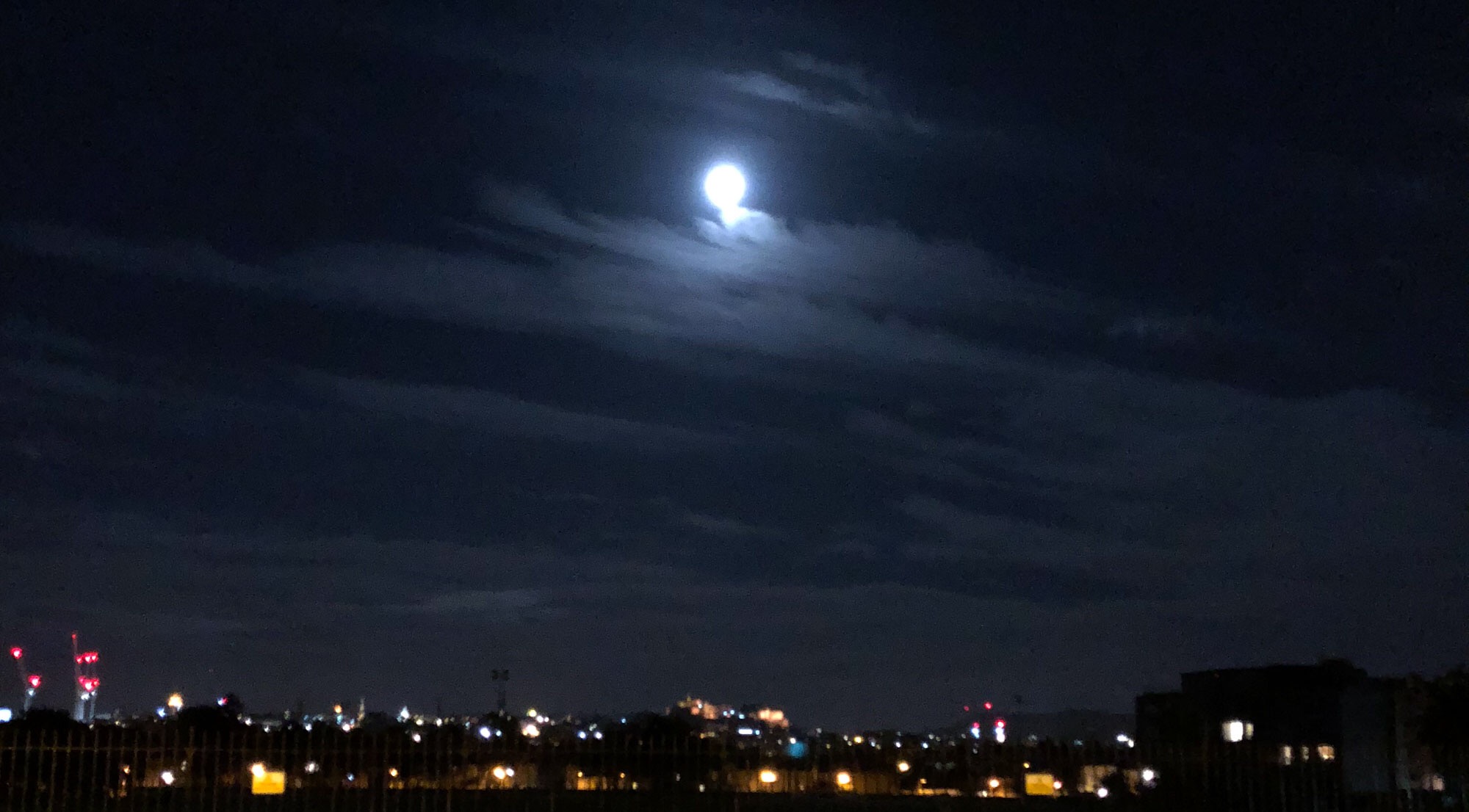Today I started the last stage by bike: From North Berwick to Berwick-Upon-Tweed, the Scottish-English border town. The overall plan for the day was a bit complicated, but it was quite different anyway.
The somewhat complicated overall plan was as follows: From Berwick-Upon-Tweed I wanted to take the train to Newcastle. Doesn't sound complicated, that's right. But in Newcastle I had organized a place via warmshowers.org where I could store my bike Horst and a lot of my luggage for a few days. The next step would have been to take the train from Newcastle back to Edinburgh with only one bag in the same evening. There I had rented an apartment for a long weekend, because my best T. would visit me there. After he would fly back to Hamburg on Sunday, I would take the train back to Newcastle, stay another night in the neighbourhood of Horst and then take the ferry to Amsterdam on Monday afternoon. That sounds more tricky, huh? And in retrospect quite unnecessary. But more about that later.
The road from North Berwick to Berwick-Upon-Tweed... yes, it's confusing that the two places sound so similar. But it doesn't get any better if you take a closer look, because the situation around Berwick (Upon-Tweed, not North) is tricky. Two phenomena as an example for the whole history at this point: First, Berwickshire, i.e. the historical administrative district that no longer exists as such today, is in the immediate vicinity of both North Berwick and Berwick-Upon-Tweed, and the latter also gives the county its name, but both places are not in this district. This is due to the very eventful history of Berwick-Upon-Tweed, which has been regularly swapped back and forth between England and Scotland over the centuries, while the Berwickshire area remained part of Scotland. A rather foggy clarity was then provided by a contract between England and Scotland from the early 16th century, which said that Berwick belonged to England but was not in England. It was precisely this contract that subsequently ensured that Berwick-Upon-Tweed had a special legislative status, which brings me to the second anecdote. So because of this special position the special consent of Berwick always had to be pointed out when the kingdom declared something: goods, the opinion or also war. In this exciting case the Crimean War of 1854 against Russia is meant, which was declared by Queen Victoria not only in the name of England, but also explicitly in the name of the small town Berwick-Upon-Tweed. The whole case reminds a little of the story from "The Mouse that Roared", in which a dwarf state declares war on the USA and even wins it after various mistakes. Well, Berwick did not win, but after the peace agreement was signed in 1856 and Berwick was not noted on this, the small town was for 110 years all alone with Russia in a state of war. It was not until the 1960s that a Russian official visited the mayor of Berwick and formal peace was reached, whereupon the mayor told the Russian people that they could sleep peacefully again. A wonderful story that is understandably part of the city's sparkling treasure of myths.
Schade eigentlich, dass sie weder wahr ist noch relevant wäre, wenn sie denn wahr gewesen wäre: Ein Fernsehsender fand 1970 heraus, dass Berwick nicht einmal auf der Kriegserklärung erwähnt wurde und wäre dem so gewesen, dann hätte der Wales and Berwick Act aus dem 18. Jahrhundert ernsthafte internationale Verwerfungen ausgeschlossen, da in dieser Verordnung die Gesetzeseinheit von England und Berwick beschrieben wurde.
The way from North Berwick to Berwick-Upon-Tweed was much harder than I thought. About 20 km before the end I had to dismount for the last time because I wasn't able to continue by turning the pedal. A really steep ramp hit me unprepared and without any momentum. But that was also somehow a nice memory of the many hills I had left behind. A few meters further I went uphill for a while, but to such an extent that I no longer had a problem with it. On the plateau of the hill there were some windmills. And I thought again of Don Quixote, rode towards them with courage and, aware that I had the finish line just in front of me, gave a few loud shouts of joy. The windmills smiled only briefly and then waved goodbye to me.
A short time later I somehow actually crossed the finish line:
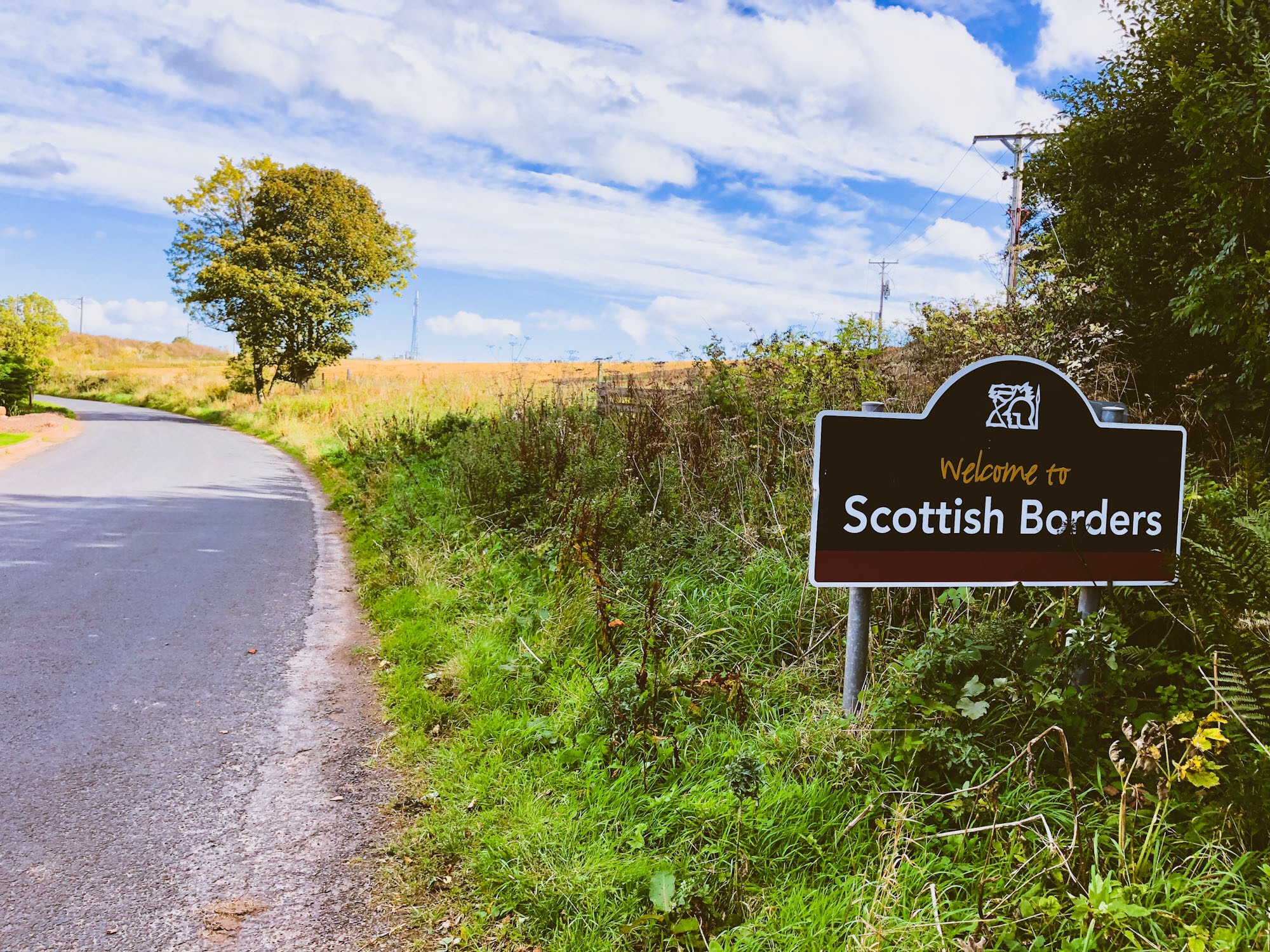
I stayed about 5 km from Berwick in a B&B. Early the next morning I rolled the last meters towards Berwick and sat down again in a café to write a bit. When I left the café after 1.5 hours, the world had changed. The sky looked different, a yellowish-cloudy curtain, but most of all it was there again: Wind! And not a bit of headwind, as it had occasionally been with me in the last week, but one that made it difficult to push the wheel. I looked at other pedestrians and saw that it was no pleasure even without a bike. Thick branches lay around and I had a uncomfortable feeling on the way to the station. Strong wind had been the forecast, but I have to admit that I had not informed myself in detail about it carelessly. Storm Ali had Ireland, the south of Scotland and the north of England firmly under control. With up to 160 km/h he was actually almost as fast that he could turn off the light and be in bed before it got dark. It just occurred to me that later I should definitely watch the fantastic film When We Were Kings, which won the Oscar for best documentary in 1997. Ali really had some charisma on top of his athletic talent.
When I arrived at Berwick station, I still thought my plan was a good one. So I bought a ticket and reservation for the bike to Newcastle, got a sandwich and a can of Tango ("You know, when you've been tango'd!") and just waited for my train to arrive half an hour later. However, it soon became clear that this would certainly not happen. Since I had to go to the track with Horst via an elevator, I was there a little earlier, which turned out to be lucky, because while most of the stranded people crowded into the main building, I sat with maybe five or six others in the waiting room at the track. There we were supplied with biscuits, chips and water by the railway staff, while they kept telling us that all the rail traffic between Newcastle and Edinburgh had collapsed. The hours passed and the situation remained unchanged. When you went outside, you felt that the storm itself was no longer the problem. It was very gusty, of course, but there must have been some major overhead line disruptions by then. There were also rumours of a derailed vehicle on the track. At some point it became clear that I would need at least a plan B and C. Plan B was to stay at the station until maybe a train would go to Edinburgh after all. Again and again it was indicated that one would work on this solution and at least a train was stranded at the station in Berwick, which had Edinburgh as destination. At that moment it became clear to me how outrageous the original idea was, so that Plan B became Plan A at that moment. Plan C, which I now promoted to Plan B, would have been to spend the night in Berwick-Upon-Tweed and hope for the next morning.
It was remarkable that there was no uneasiness at all at the entire station. All the people I saw there were very relaxed about the situation. There was no grumbling to the railway staff, but also no spontaneous displacement activities, so no bad jokes, no arguments or worse. Everyone just sat there and talked quietly or played around with their smartphones. Furthermore, I had the feeling that the trainmen had contributed a lot to it. Every question was not only listened to patiently, but also answered with commitment, even if it was asked for the tenth time. For example, I went back to the main hall sometime to ask about the ticket situation at the counter, because my ticket to Newcastle was definitely useless at that time. Of course I got my money back right away, but when I asked if there was any chance that I could still go to Edinburgh, the gentleman behind the window didn't just shrug his shoulders and look at me tiredly-pitying, but reached for the phone and asked about the current situation, which he unfortunately couldn't answer positively at that moment, but he gave me hope. How often will he have heard my question in the last few hours? But that didn't stop him from working on it again with all seriousness. Thank you for that! I went back to the waiting hall at the track and just as I was arriving there, a conductor from the train standing there at the track asked if I wanted to go to Edinburgh as well. The train was just getting ready, obviously the worst problems had been solved. I briefly pointed out that I was not in possession of a corresponding ticket at the time, which he acknowledged, however, with a smile and the answer that he was completely sure that no one today felt the desire to check such a thing. And so I rolled into Edinburgh station not even particularly late and, as I can reconstruct in my messages, at 19:04.
I'm trying to remember why I ever came across this back and forth: Berwick - Newcastle - Edinburgh - Newcastle. It was clear that T. would visit me in Edinburgh. But I had originally planned that Newcastle would be the destination of my trip. Later, however, I realized that Berwick would be the much more sensible place to end the trip around Scotland, as it is right on the border. When I realized that cycling from Berwick to Newcastle would be a whole day, I decided the week before that I could do it just as well by train and would rather spend quality time with golf. I recently reported in detail that this plan was a complete success in North Berwick, but then I forgot to think about the zigzag course at all. I was also so happy that I could find someone who would have just fed the good old Horst for a few days that I didn't want to change this beautiful aspect of the plan anymore. Once more it becomes clear: Plans are not the treasure itself, but only a treasure map. To get to the treasure you only have to know where the cross is, you can change the way according to the circumstances. I have seen so many projects in my professional life that have been approached differently and where the plan seemed to be the real goal. I forgot that here for a moment, but fortunately Ali ran through the hurricane again without getting wet and reminded me.
What came next was a very relaxed weekend with wonderful weather in Edinburgh. There were clear views down from the nearby hill:
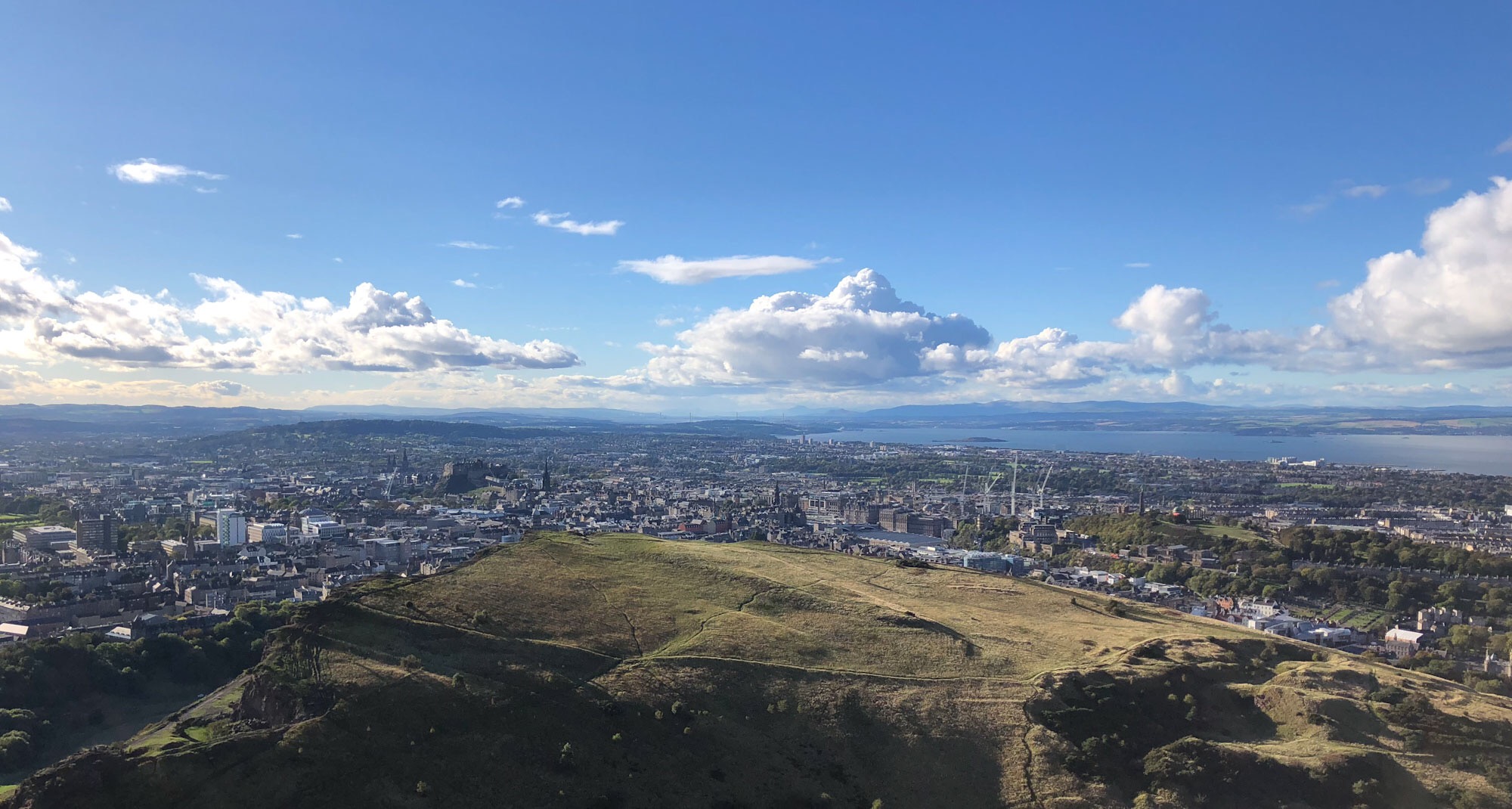
The pet cemetery within the walls of Edinburgh Castle:
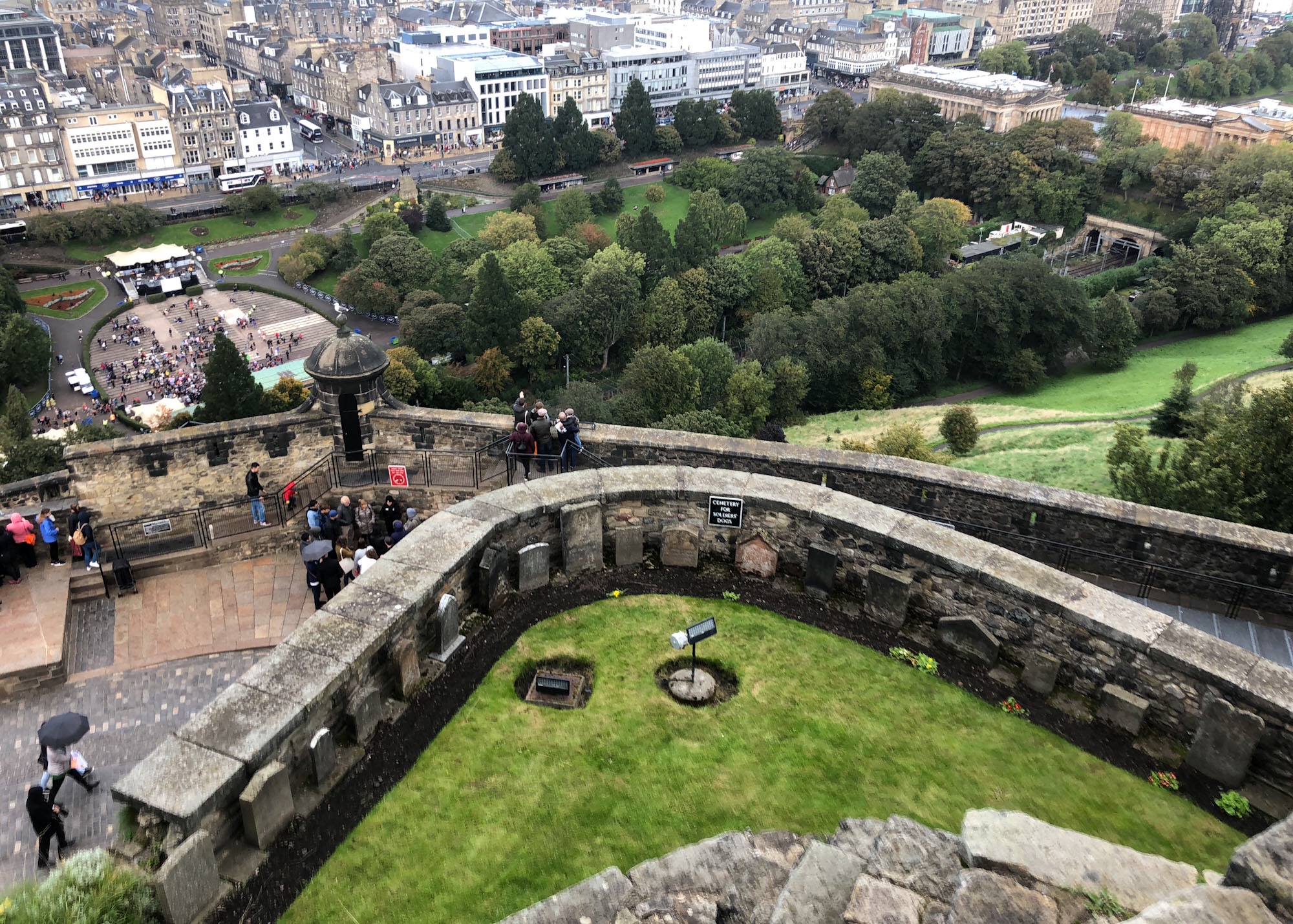
And a few soap bubbles that there can never be enough of:
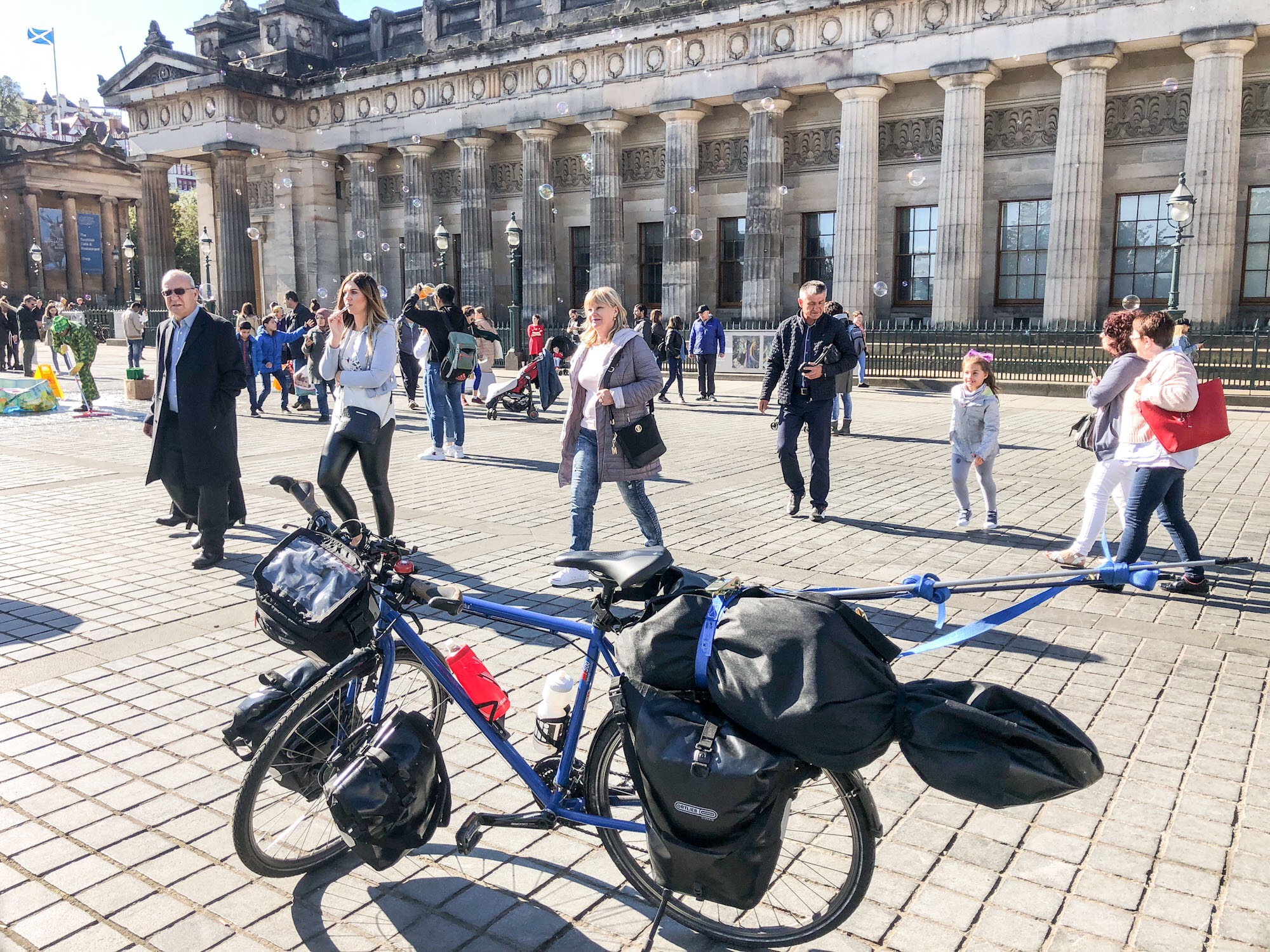
Finally, I spent a very sunny day in Newcastle, which I idled away with a great visit to the BALTIC Center, which I had visited and remembered many years ago, but no longer knew why. Now I know it again: because it's a beautiful place for contemporary art.
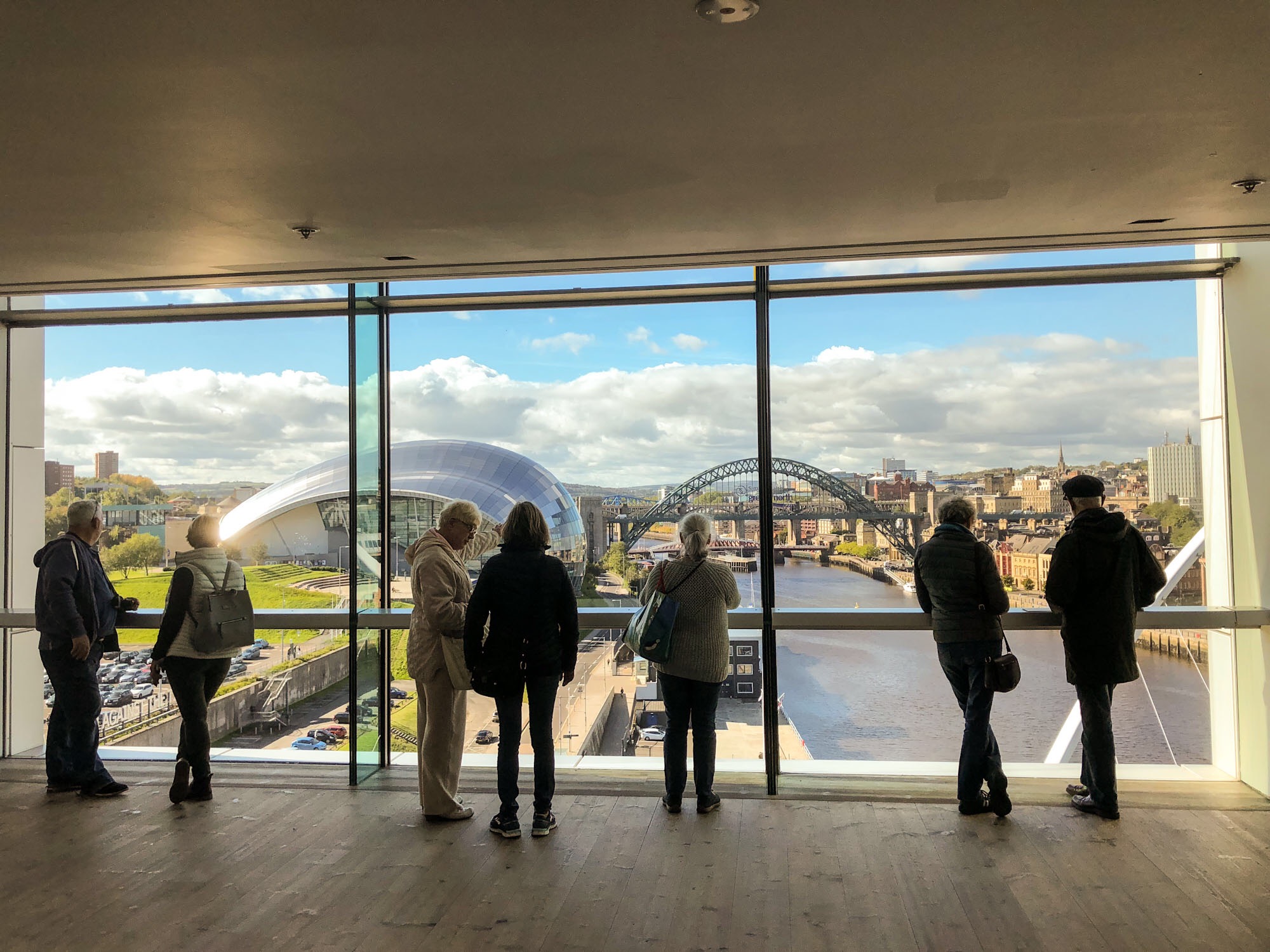
Then I went to the ferry with a last one hour of packed riding.
Therefore:
